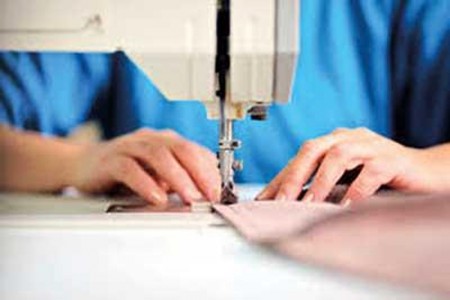The brief titled ‘No relief: why clothing brands should take responsibility for worker relief payments amidst the economic crisis in Sri Lanka’, released last week, called upon the brands to ensure that the workers in their Sri Lankan supply chains are paid the ERA unconditionally and that their right to organise and to have decent working conditions in line with the Conventions of the International Labour Organisation are safeguarded.
The CCC alleges that garment workers in Sri Lanka have not been receiving the full Emergency Relief Allowances (ERA) of Rs. 10,000 on top of their monthly wages.
“Instead, workers have received far less than the ERA, or nothing. Bonuses have only been paid out under certain conditions, such as perfect attendance,” the CCC said in its latest research brief.
According to the CCC, several attempts by organisations in the CCC network to engage with the main garment brands sourcing from Sri Lanka urging them to take action to safeguard the livelihoods of their workers have had little effect thus far.
However, responding to the claims made by the CCC, Sri Lanka’s Joint Apparel Association Forum (JAAF) said it “strongly” refutes the implications in the brief. It pointed out that while the article is addressed to global clothing brands, a careful reading uncovers serious allegations against Sri Lankan apparel manufacturers who are their partners.
“Those allegations have been used in the past by CCC, and the Joint Apparel Associations Forum (JAAF) has refuted and disproved them on multiple occasions. Including them in setting the context for the demands in this latest brief is inappropriate, unfair and borders on slanderous, both in tone and content,” JAAF said in a statement yesterday.
Commenting on a statement made by CCC which read “the massive wage theft and sickness during the pandemic…”, JAAF said the implication here appears to be that wages were not paid to workers for work done and that companies in effect “stole” those wages and added it to their bottom line.
“That would be against the law, and had it been the case employees / unions could have raised these as complaints with the Labour Department. Additionally, several audits have shown that all wages during the pandemic were paid,” clarified the Forum.
The CCC report also accuses the apparel industry of paying “subsistence wages”. To this JAAF noted that its members pay its employees well above the minimum wage and have made significant cost of living adjustments to salaries over and above the annual increments. In some instances, these represent increases of 25 percent from 2021.
Even before the intervention by trade unions and activist groups, apparel firms responded to the impact of the economic crisis with in-kind support including food packs and dry rations for families, said JAAF. It added that rather than acknowledge those efforts, even if limited, the CCC brief puts a cost to them to demonstrate they are inadequate.
“The devaluation and resultant inflation is not a consequence of the actions of the apparel industry, past or present. Despite the CCC’s accusations and those of some labour unions, JAAF, representing the apparel industry, is working with the ILO and other agencies on the Better Work Initiative,” the association stressed.
“There is no doubt that the workers’ hardships are real. The apparel industry will not be able to function without our workers, and JAAF has acknowledged the importance of its workers to the health, well-being and sustainability of the apparel industry and Sri Lanka’s economy.
“The approach taken in the CCC brief – making allegations and unfounded accusations is not the way to get action on overcoming the country’s or the workers’ current plight,” asserted JAAF.


